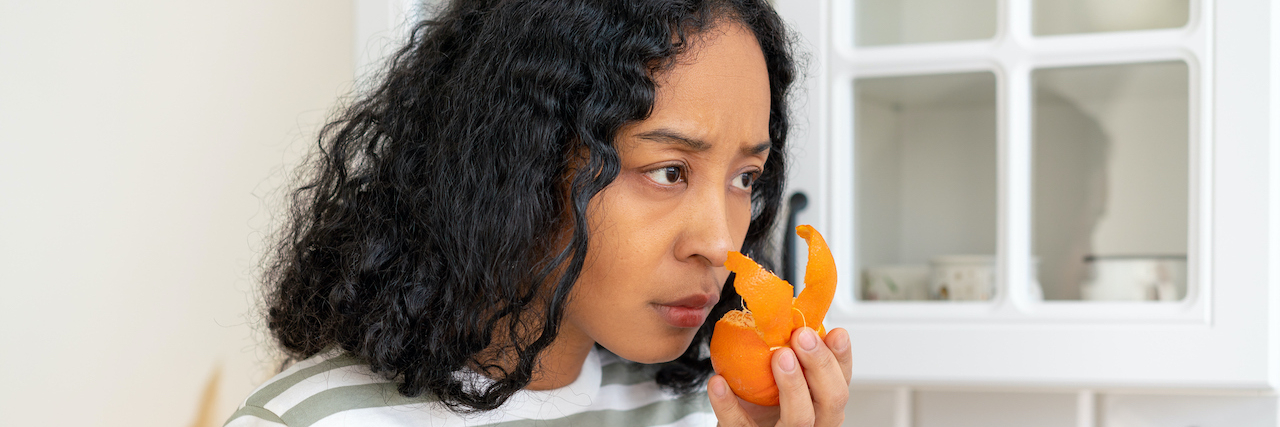Have you ever lost your sense of smell while you had a bad cold and couldn’t smell your morning cup of coffee? What would your life be like if your smell didn’t return?
I have acquired anosmia and in my personal experience, when I tell someone that I can’t smell, they typically ask “but what about… flowers, gasoline, cigarette smoke?” I then have to explain that no, I mean it, I really can’t smell anything, ever. At that point in the conversation, they say oh OK and move on. Only sometimes does this exchange go further and the fact of what it means not to smell really sink in for them.
What does not having a sense of smell really mean?
- I have never smelled my husband,
- I have never smelled my son,
- I probably will never smell either one of them or fresh rain, baked bread, or a Christmas tree ever again.
Please stop for a moment and let those facts sink in.
Smell loss impacts mental health, nutrition, memory, safety, and overall health and wellness. When I first became anomic in 2009 due to an upper respiratory infection, I saw my family doctor, an ENT, and a neurologist in that order. It took many months for all these visits and referrals to take place but at the end of my journey in 2010, when I finished visiting all these doctors, I wasn’t told anything else. There was no specific goodbye and good luck with your life. The last time I saw the neurologist was anticlimactic and I didn’t realize at the time that that was it. I was done being seen by medical providers for this condition.
No one referred me to a therapist to help me manage the implications that anosmia would have on my mental health, no one explained to me that not having a sense of smell would dictate my nutritional choices for the rest of my life because I can no longer perceive flavors, no one told me that I should be more aware of fire and gas leaks in my home. No one explained to me that not having a sense of smell meant that I would have a harder time forming memories. No one told me that I would feel isolated and completely alone and like I was the only person alive with anosmia. No one said anything.
In 2018, after nine years of living with anosmia and not paying it much attention because it was too painful to do so, I decided to start to explore and unpack my own experiences with anosmia. I did this by starting the Smell Podcast with the goal to share listener stories and ensure people with anosmia know that they are not alone. Since that time, I have published over 100 episodes.
In 2020, I met with a group of people with anosmia and other individuals interested in smell and taste and began having meetings to discuss the launch of the first patient advocacy organization focused on smell and taste dysfunction in the United States. We then officially launched the Smell and Taste Association of North America (STANA) in early 2021. STANA’s vision is a world where taste and smell are valued as essential to health, safety, and wellness.
Anosmia Awareness Day is an annual celebration which started in 2012 and is held on February 27th each year with the goal to raise awareness that some people live without a sense of smell. I choose to celebrate Anosmia Awareness Day each year so that other people living with smell dysfunction know that they are not alone. If I can help one person avoid feeling the way I felt when I first became anosmic, then that will be worth it, that is enough.
You are not alone, happy Anosmia Awareness Day!
Getty image by NataBene

